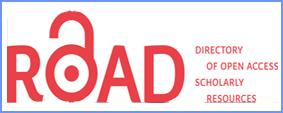The Concept of Islamic Treatment on Disease
Abstrak
Provided that the Qur'an and the Prophet’s Sunnah serve as the basic guidelines for Muslims, suggestions to find remedy upon illness as well as clues to some medical treatments have been broadly put forward in these guidelines. The Prophet Muhammad has also presented many examples or models of coping with diseases and simple treatments that works well in healing, which can be practiced by Muslims. The core treatments thought by the Prophet Muhammad can be divided into three parts: spiritual treatment, material treatment, and moral treatment. There is no contradiction between the Prophet’s method of healing and that of the modern practice; therefore there is no need to debate upon the two different medical treatments. What needs to be noticed is the guidelines that have been outlined by the Qur'an and the Sunnah, such as that to avoid treatments with elements of shirk (heresy) or haram (forbidden), and to believe that medicine and healers are just intermediaries.
Referensi
Bahraen, Rahaenul. Haruskah Kedokteran Modern dan Thibbun Nabawi dipertentangkan. http:muslim.or.id/fiqh-dan-muamalah /haruskah – kedokteran – modern – dan – thibbun -nabawi-dipertentangkan.html (retrieved on 23 March 2012).
Dwijayanti, Diah Ayu. Pengobatan Menurut Pandangan Islam, Blog Bin Muhsin Grup. http://www.binmuhsingroup.com/Pengobatan-Menurut-Pandangan-Islam.html (retrieved on 23 March 2012).
Gray, Jerry D. Rasulullah is my Doctor, trans. Tetraswari D. Jakarta, Sinergi Publishing, 2011.
Al Jauziyah, Ibnu Qayyim. Ath-Thibbun Nabawi (Metode Pengobatan Nabi), trans. Abu Umar Basyir Al-Maidani. Jakarta, Griya Ilmu, 2004.
Al Sadhan, Syekh Abdullah bin Abdur Rahman. Cara Pengobatan dengan Al-Qur’an, trans. Muzaffar Sahidu. Islam house copy, 2009.
Umar, Wadda’ A. Sembuh dengan Satu Titik. Solo : Al-Qowam, 2011.




.png)









